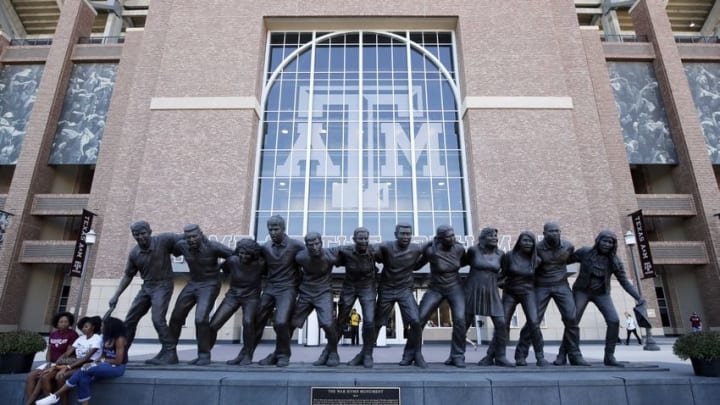Tennessee Football: Vols Facing a Different John Chavis than the One Who Left Knoxville in 2008

Former Tennessee football defensive coordinator John Chavis will face the Volunteers with the Texas A&M Aggies Saturday. He is a completely different coach.
When John Chavis left the Vols in 2008 after Phillip Fulmer’s firing and 14 years as the defensive coordinator at his alma mater, Tennessee football fans may not have realized how much they under-appreciated him.
The desperation for new blood in the program caused them to overlook the fact that Chavis consistently turned out elite, blue-collar defenses in Knoxville.
However, they were right in their assessment of Chavis. The book was out. He is the greatest coach in football when it comes to developing talent. Scouts drooled over Tennessee defensive players because of how well the coaches developed them.
Related Story: 5 Vols to Watch for vs Texas A&M
He also is the greatest coach in football when it comes to preparation against on offense he’s seen in the past.
But if you threw a different offense his way, if you changed your game from what you’ve done on film from the previous weeks, or if you made adjustments in the middle of the game, Chavis couldn’t keep up.
The result of this was that Chavis’s defenses were getting owned by Tim Tebow and the Florida Gators in their newly fashionable spread offense.
He couldn’t keep up with Nick Saban’s staff at Alabama making in-game adjustments. And the frustration of those two things left fans frustrated beyond belief.
Fast-forward to now, in his second year with the Texas A&M Aggies. Chavis enjoyed a seven-year run with Les Miles and the LSU Tigers.
In that time, he completely turned around his reputation.
And as he gets set to face his former school, Chavis now has a reputation for stopping the spread offense that Tennessee football runs.
In fact, he’s probably the best defensive coordinator in football at stopping the spread.
However, there’s a reason for this. As more teams in the SEC began to run it, Chavis became more familiar with it. We’ve already noted that Chavis is the best defensive coordinator in the world at shutting down an offense he’s familiar with.
In the 1990s, Steve Spurrier owned Chavis when he was with the Gators. However, as Chavis got more familiar with Spurrier’s fun-n-gun, he began to shut it down. And from 1998 to 2001, even if Tennessee lost, Chavis got the best of Spurrier’s offense.
The same holds true for the option offense. Nebraska destroyed Tennessee twice in the 1990s, and Kansas State did it in 2001 while running the option. But then Alabama tried to install it in 2002. By that point, Chavis had figured it out.
The same holds true for the spread offense now, but it’s still the most fashionable offense in football.
So Chavis is thriving on shutting down that offense.
There’s another element though that Chavis added to his style after leaving Knoxville. Since his time at LSU, he has developed a major reputation for making great in-game adjustments.
Now this frustrates the heck out of Vols fans. In 2001, Chavis’s failures at making adjustments cost them the SEC title to LSU when he wasn’t ready for Matt Mauck.
Why, when he leaves Tennessee football, would he all of a sudden develop that skill? Whatever the reason, he turned from a good defensive coach into a great defensive coach with these improvements. He’s now a legend in the game because of it.
Must Read: 5 Biggest Reasons the Vols Are Undefeated
So the Vols are facing a defensive coach who is much better than the one who they got rid of in 2008. And that could be very dangerous.